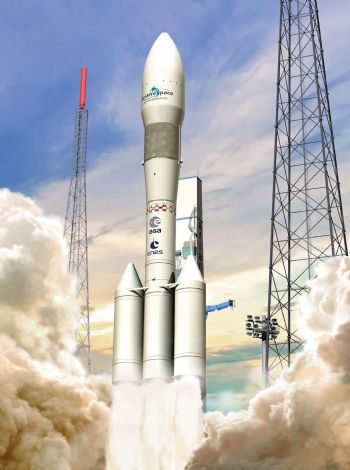
EU ministers meeting in Luxembourg earlier this month agreed to fund the development of a new generation of rockets to carry satellites into orbit. A total of 3 billion euros will be given to the European Space Agency to help support the Ariane 6 programme.
The EU will also provide further funding towards the second phase of the ExoMars mission — scheduled for 2018 — that is “intended to deliver a Rover vehicle capable of searching for signs of past or present life”.
Responding to the news, Chris McLaughlin, vice-president of external affairs at the Inmarsat commercial satellite group, said: “Europe’s satellite industry has suffered a number of setbacks on heavy launches recently, so this funding is absolutely essential.
"It is a shame it was not done five or six years ago. At the moment, there is very limited choice for getting large satellites into space . . . and Ariane is now stepping into this area.”
The funding decision has also been warmly welcomed by the French space industry, which had been campaigning for the Ariane 6 programme in the face of opposition from Germany’s Angela Merkel, whose government had been advocating the lower-cost option of updating the existing Ariane 5 programme. France will fund 50% of the Ariane 6 programme and is expected to win at least the equivalent in contracts.
Geneviève Fioraso, the French Minister for Higher Education and Research, said that the “historic” decision is “a bold response to international competition in a sector crucial for European sovereignty, industry and employment”.
Meanwhile, Jean-Yves Le Gall, president of the French space agency (CNES), said the decision to develop a new generation of rockets is “a victory for Europe. This is the launcher we have been dreaming about.”
The EU meeting in Luxembourg also pledged to provide 800 million euros towards maintaining the International Space Station and related activities up to 2017 — just 20 million euros short of the sum that had been requested. Ministers also agreed to upgrade the small Italian-built Vega rocket, and to proceed with the next phase of Sentinel-6 — a satellite designed to measure the shape of the oceans.